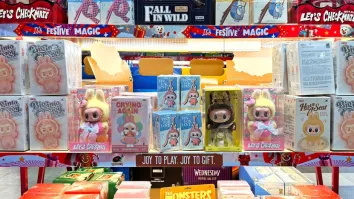
‘Buy Now, Pay Later’ paves the way for SEA’s big spenders
Over 8% of ZALORA consumers in the region used the scheme for luxury items.
The “Buy Now, Pay Later” (BNPL) scheme has paved the way for Baby Boomers to take over ZALORA’s luxury segment, ZALORA reported.
Whilst the younger generations, such as the Millennials and Gen Zs, dominate the platform, those aged over 40 accounted for 26% of the market share.
“Boomers have become increasingly tech-savvy, spending more time online than they ever did before,” the ZALORA TRENDER REPORT 2021 read.
This is followed by shoppers aged 26-30 (22%), 31-35 (20%), 21-25 (16%), and 36-40 (14%). The remaining 3% were accounted for by those aged 21 and below.
ZALORA attributed the minimal margin between the age groups that continues to get “smaller” to new innovations and service offerings, like the BNPL.
“By allowing customers to make flexible payments over a specific period of time, consumers who previously did not have access (think Indonesia’s underbanked community) nor means to splurge (fresh grads, for some) are finally able to do so today,” it noted.
Across Southeast Asia, 8.11% of shoppers used BNPL for luxury items on ZALORA, of which 5.57% were on an instalment arrangement, whilst 2.54% were non-instalment.
Malaysia registered the highest share of consumers that used the scheme for high-end products with 10.17% on instalment and 4.07% non-instalment. In contrast, Indonesia had the lowest usage with 0.64% on instalment and 0.57% on non-instalment.
“This dramatic difference could also be closely related to Indonesians preferring sportswear and hobby-related products instead of luxury items, as well as their varying digital penetration across its thousands of islands,” ZALORA explained.
Most shoppers of high-end products purchased wallets and purses (8.79%), fragrances (8.03%), and t-shirts (7.45%).



















 Advertise
Advertise





